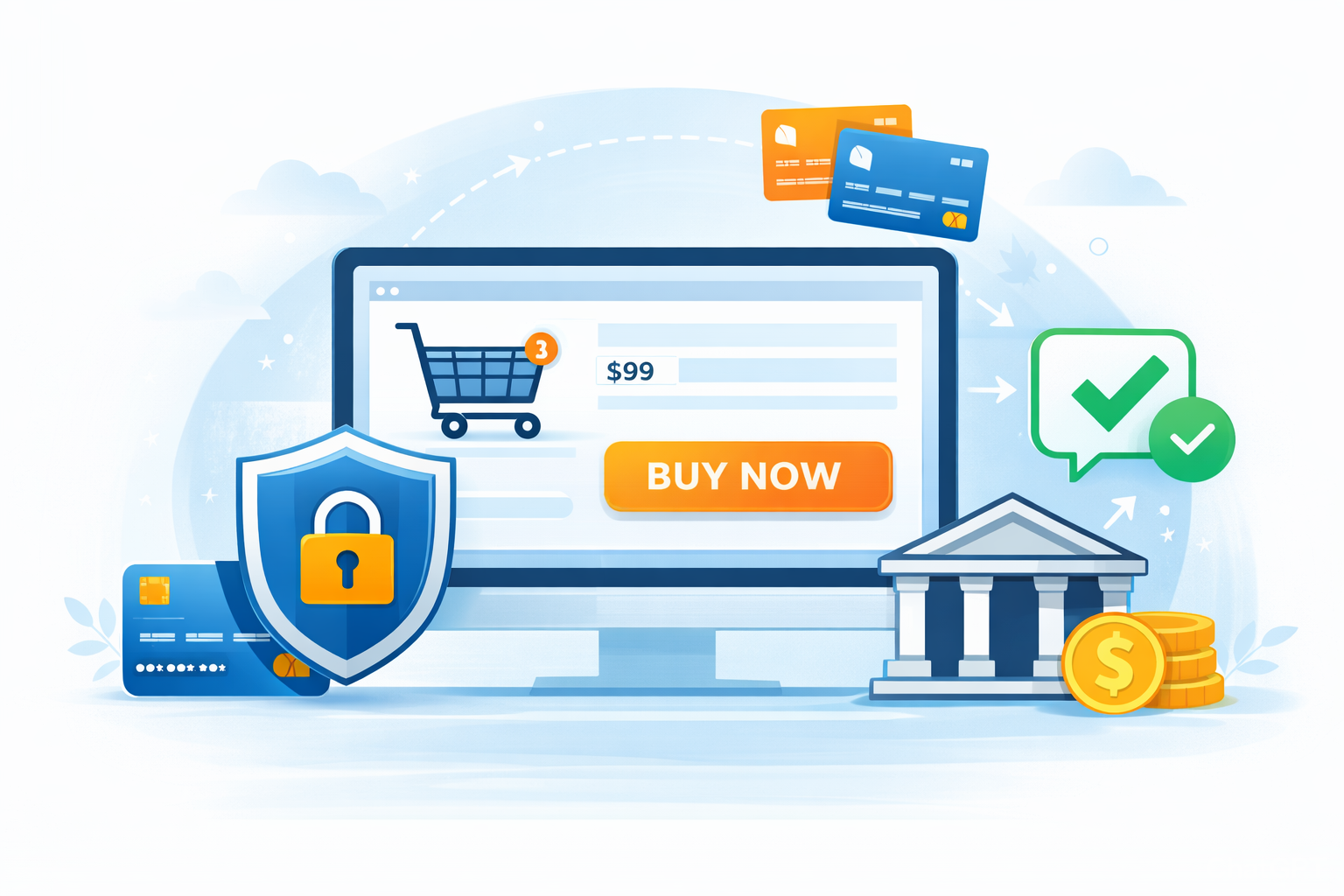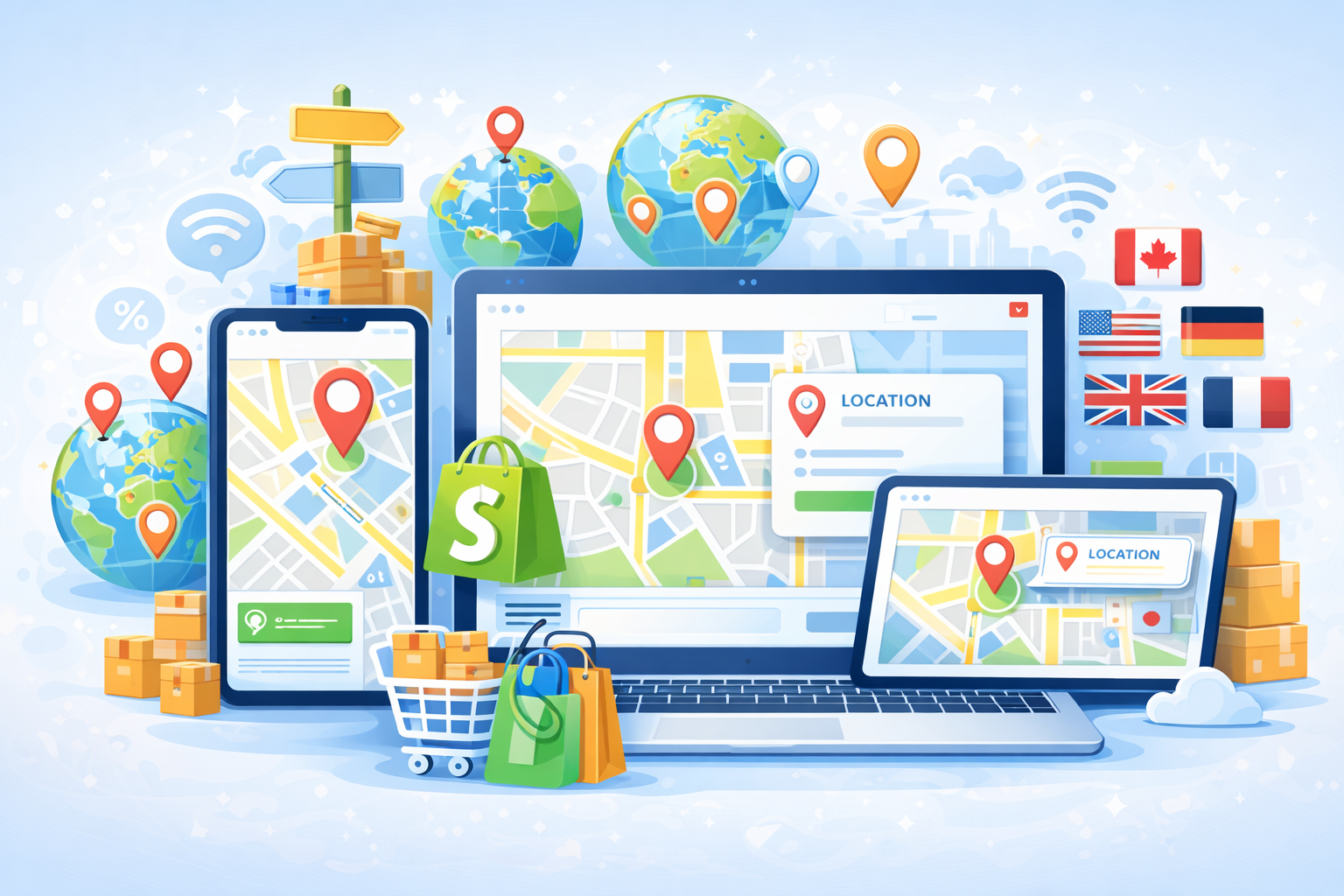Try Zipchat in Action!
Enter your store URL to see how Zipchat would behave.

Ecommerce has revolutionized the way we shop and do business. It has allowed small businesses to reach customers all around the world and has provided convenience and accessibility to consumers. However, one aspect of ecommerce that can often be challenging is shipping. The process of shipping products to customers can be complex, time-consuming, and costly if not managed effectively. In this article, we will explore various strategies and methods to simplify your ecommerce shipping process, helping you streamline operations and boost customer satisfaction.
Understanding Ecommerce Shipping
What is Ecommerce Shipping?
Ecommerce shipping refers to the process of preparing and delivering products sold online to customers. It involves packaging, labeling, choosing shipping carriers, and managing logistics to ensure timely and secure delivery. In simple terms, ecommerce shipping is the bridge between the online shopping experience and receiving the physical products.
When it comes to ecommerce shipping, there are various factors to consider, such as the size and weight of the products, the destination of the shipments, and the desired delivery speed. Different shipping carriers offer a range of services, from standard ground shipping to expedited options like overnight delivery. Selecting the most cost-effective and reliable shipping methods for your business can have a significant impact on customer satisfaction and your bottom line.
The Importance of a Cohesive Shipping Strategy
A well-defined and cohesive shipping strategy is crucial for the success of any ecommerce business. It establishes trust with customers by providing transparent shipping options and accurate delivery estimates. A seamless shipping process can lead to increased customer satisfaction, repeat purchases, and positive online reviews. On the other hand, a fragmented or confusing shipping process can result in cart abandonment and diminished customer loyalty.
Furthermore, a cohesive shipping strategy can also contribute to sustainability efforts. By optimizing packaging materials and shipment routes, ecommerce businesses can reduce their carbon footprint and promote eco-friendly practices. Implementing green shipping initiatives not only benefits the environment but also resonates with environmentally conscious consumers, potentially attracting a new segment of customers to your brand.
How Shipping Impacts Your Bottom Line
Shipping costs can significantly impact your ecommerce business's profitability. According to surveys, unexpected shipping costs are the leading cause of cart abandonment during the checkout process. Additionally, high shipping fees can deter potential customers from completing their purchases. It is imperative to optimize your shipping process to minimize costs while ensuring reliable and efficient delivery.
Moreover, offering free shipping promotions or threshold-based free shipping can be a powerful marketing tool to increase order value and customer retention. By strategically incorporating shipping incentives into your pricing strategy, you can attract more customers and encourage larger purchases, ultimately boosting your revenue and strengthening your competitive edge in the ecommerce market.
Key Shipping Methods for Ecommerce

Two-Day Shipping
Two-day shipping has become the gold standard for ecommerce businesses aiming to provide fast delivery to customers. It is a popular option for customers who seek quick gratification for their online purchases. By partnering with shipping carriers that offer expedited delivery, you can meet customer expectations and gain a competitive advantage in the market.
Same-Day Delivery
In recent years, same-day delivery has emerged as a game-changer in the ecommerce industry. More and more customers expect the option to have their purchases delivered on the same day. Companies like [Company B] and [Company C] have revolutionized the ecommerce landscape with their same-day delivery services. Offering this expedited shipping option not only delights customers but can also drive impulse purchases and increase order values.
Overnight or Expedited Shipping
For customers who require urgent delivery, offering overnight or expedited shipping options can be a differentiating factor for your ecommerce business. Whether it's last-minute gifts or critical supplies, providing a reliable and fast delivery service can enhance customer satisfaction and loyalty.
International Shipping
Expanding your ecommerce business globally opens up new markets and opportunities. However, international shipping can present unique challenges, such as customs regulations, language barriers, and varying shipping costs. Partnering with experienced international shipping carriers will ensure smooth cross-border logistics and enable you to tap into the global marketplace.
Eco-Friendly Shipping
With growing environmental awareness, eco-friendly shipping options have gained traction among customers. Offering carbon-neutral shipping or using sustainable packaging materials can attract eco-conscious consumers and demonstrate your commitment to sustainability. Incorporating green shipping practices not only benefits the environment but also improves your brand's reputation.
When it comes to two-day shipping, it's not just about speed. It's also about the careful handling of packages to ensure they arrive in pristine condition. Ecommerce businesses that prioritize quality packaging materials and secure packaging techniques can minimize the risk of damage during transit. By investing in sturdy boxes, protective cushioning, and secure sealing, you can provide a seamless delivery experience for your customers.
Furthermore, same-day delivery is not just a matter of speed, but also efficiency. Companies that offer this service often have strategically located fulfillment centers or local partnerships to ensure quick order processing and delivery. By optimizing your logistics network and leveraging technology to streamline operations, you can fulfill same-day delivery orders with precision and accuracy, delighting your customers with lightning-fast service.
Calculating the True Cost of Shipping
Factors Affecting Shipping Costs
Various factors contribute to the overall cost of shipping. Some common factors include package weight, dimensions, shipping distance, and the chosen shipping carrier. Understanding these factors and how they impact costs is essential for accurate pricing and maintaining profitability.
Dimensional Weight
Shipping carriers often calculate costs based on dimensional weight, which considers both the weight and size of the package. The dimensional weight is determined by applying a formula that converts the package dimensions into a standardized weight value. By optimizing packaging and reducing dimensional weight, you can save on shipping costs.
Shipping Carrier Selection
Choosing the right shipping carrier is a critical decision that can significantly impact your shipping process. Different carriers offer various pricing structures, delivery speed, and service levels. Researching and comparing carriers, their capabilities, and rates will allow you to select the most suitable partner for your ecommerce business.
Shipping Distance
The distance between your business location and the customer's destination directly affects shipping costs. Shipping domestically is generally more affordable than international shipping, but longer distances can still increase costs. It's important to consider shipping zones and negotiate optimal rates with carriers based on your shipping volume and destination patterns.
Product Handling and Loading
Safely handling and loading products for shipping is crucial to avoid damages and delays. Proper packaging and securing of items can prevent product breakage during transit. Carriers often have specific guidelines for packaging, and employing best practices will minimize the risk of product damage and shipping issues.
Additionally, it is important to consider the fragility of your products when calculating shipping costs. Fragile items require extra care and specialized packaging materials to ensure they arrive at their destination intact. This may include using bubble wrap, foam inserts, or sturdy boxes to protect delicate items from any potential damage during transportation.
Furthermore, the type of shipping service you choose can also impact the overall cost. Expedited shipping services, such as overnight or same-day delivery, often come with higher price tags due to the urgency and additional resources required for faster delivery. It is essential to evaluate whether the speed of delivery is worth the extra cost for your specific business needs.
Structuring Your Shipping Costs
When it comes to structuring your shipping costs, there are various strategies you can employ to cater to different customer preferences and business needs. In addition to flat rate and variable rate shipping, you may also want to consider other innovative approaches to enhance the shipping experience for your customers.
Flat Rate Shipping
Flat rate shipping is a straightforward and convenient pricing model that can benefit both businesses and customers. By offering a flat rate regardless of package weight or destination, you provide a consistent shipping cost that simplifies the purchasing process. This approach is particularly advantageous for businesses that deal with products of uniform size and weight, as it streamlines pricing and eliminates the need for complex calculations.
Variable Rate Shipping
On the other hand, variable rate shipping offers a more tailored approach to pricing based on specific factors like package dimensions, weight, and shipping distance. While this method may require more sophisticated logistics and real-time calculations, it can provide customers with more accurate shipping costs. By leveraging shipping cost calculators and APIs, you can ensure transparency in pricing and avoid unexpected charges at checkout, ultimately enhancing the overall shopping experience.
Free Shipping Options
Free shipping is a compelling incentive that can attract customers and drive sales, but it's crucial to carefully evaluate its feasibility for your business. To offset the costs associated with free shipping, you can explore different strategies such as embedding shipping expenses into product prices, setting a minimum order value for free shipping eligibility, or offering free shipping selectively for certain products or promotional periods. By strategically implementing free shipping options, you can capitalize on its marketing benefits while maintaining financial sustainability.
Choosing the Right Shipping Carrier
USPS
The United States Postal Service (USPS) is a popular choice for many ecommerce businesses due to its extensive network and affordable rates for domestic and international shipping. USPS offers various services, such as Priority Mail and First-Class Mail, catering to different shipping needs. It is a reliable option for small to medium-sized packages.
One of the key advantages of using USPS is its commitment to customer service. USPS has a dedicated customer support team that can assist with any shipping inquiries or issues that may arise. Additionally, USPS offers convenient features such as online package tracking and delivery notifications to keep both businesses and customers informed every step of the way.
DHL
DHL is a global shipping provider known for its international express deliveries. With a strong presence in over 220 countries and territories, DHL offers fast and reliable shipping services for both ecommerce businesses and individual customers. Their robust tracking system and customs expertise make them an ideal choice for cross-border ecommerce.
Furthermore, DHL is committed to sustainability and reducing its carbon footprint. The company has implemented various eco-friendly initiatives, such as using alternative fuels and optimizing delivery routes to minimize environmental impact. By choosing DHL as a shipping carrier, businesses can align themselves with a company that prioritizes environmental responsibility.
FedEx
FedEx is a renowned shipping carrier that provides domestic and international shipping solutions. Their services, such as FedEx Express and FedEx Ground, cater to a wide range of ecommerce shipping needs. FedEx boasts a reliable network, advanced tracking capabilities, and competitive pricing options.
In addition to their shipping services, FedEx offers value-added solutions such as packaging services and customs clearance assistance. This comprehensive approach ensures that businesses can streamline their shipping processes and focus on growing their operations. With FedEx's reputation for efficiency and reliability, businesses can trust that their packages will reach their destinations safely and on time.
UPS
UPS, or United Parcel Service, is a trusted shipping and logistics company offering domestic and international shipping services. They provide various delivery options, including ground shipping, air freight, and same-day delivery. UPS's extensive network, advanced technology, and excellent customer support make them a preferred choice for many ecommerce businesses.
Moreover, UPS is dedicated to innovation and continuously invests in technology to enhance their shipping services. From advanced tracking systems to automated sorting facilities, UPS leverages cutting-edge technology to optimize the shipping process and improve efficiency. By partnering with UPS, businesses can benefit from these technological advancements and ensure seamless shipping operations.
Conclusion
Simplifying your ecommerce shipping process is essential for improving customer satisfaction, increasing sales, and maximizing profitability. By understanding the different shipping methods, calculating the true cost of shipping, structuring your shipping costs, and choosing the right shipping carrier, you can streamline your operations and provide an exceptional shipping experience for your customers. Remember, your shipping process is an extension of your brand, so invest time and resources to develop a cohesive strategy that reflects your commitment to excellence.
Enhance Your Ecommerce Experience with Zipchat AI
While simplifying your shipping process is key to ecommerce success, enhancing customer engagement and support is just as crucial. Zipchat AI is here to revolutionize your online store's interaction with customers. With our advanced AI chatbot, you can proactively engage visitors, boost your conversion rates, and provide seamless support. Experience the difference and see your sales soar with an average 13.4% Chat-to-Sale conversion rate. Ready to transform your ecommerce store? Start a 7-Day Free Trial today and elevate your business with Zipchat AI.








